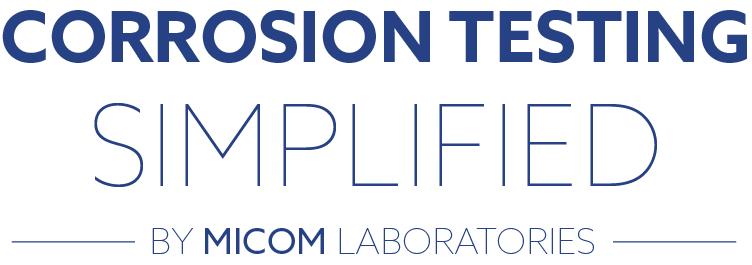Corrosion Testing Simplified
Corrosion Testing
What is corrosion?
In the simplest forms, corrosion is the gradual destruction of materials, by chemical reaction with their environment.
Corrosion typically affects materials and structures with regard to:
- Strength
- Appearance
- Permeability to liquids and gases
Corrosion is often associated with the term rust (mostly related to metals) or material degradation (mostly related to non-metal objects such as polymers).
Cyclic Corrosion Testing
Material testing
laboratories can simulate and replicate material degradation on an accelerated basis.
Accelerated corrosion testing can be carried out in two ways: static and cyclic.
As the name implies, static tests submit the product being tested to a steady exposure to corrosive environments.
On the other hand, since real life environmental conditions are constantly changing, cyclic corrosion tests vary the exposure of the product being tested to different types of corrosive environments. This produces more realistic testing results.
Salt Spray Testing
Salt spray test is widely used in the industrial sector to evaluate the corrosion resistance of finished surfaces or parts.
In a material testing lab, salt spray testing is often carried out under the ASTM B117
testing protocol.
